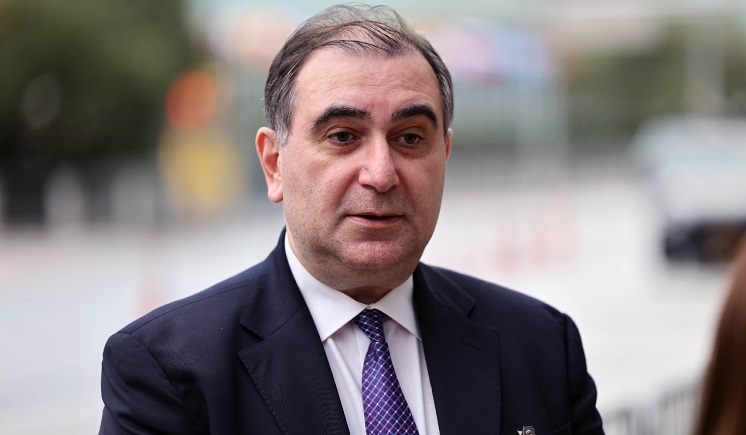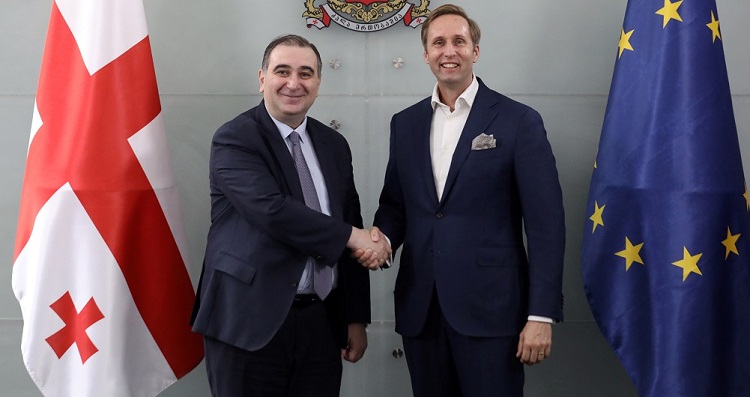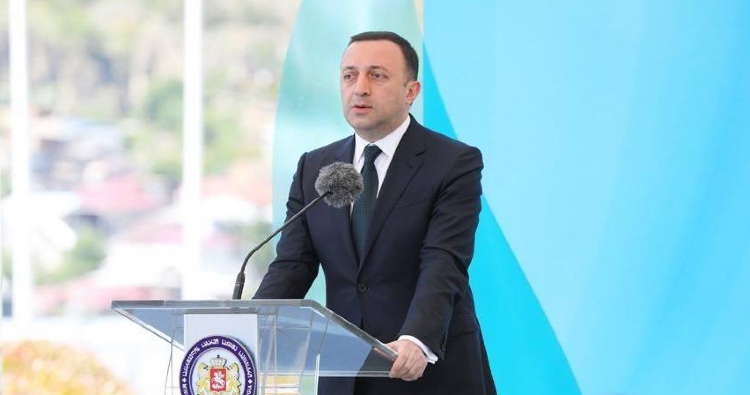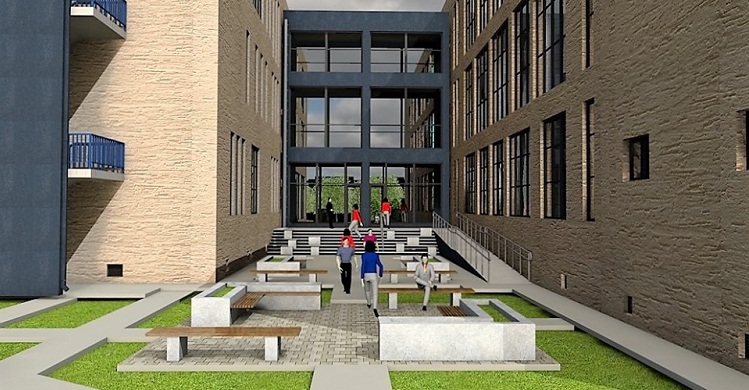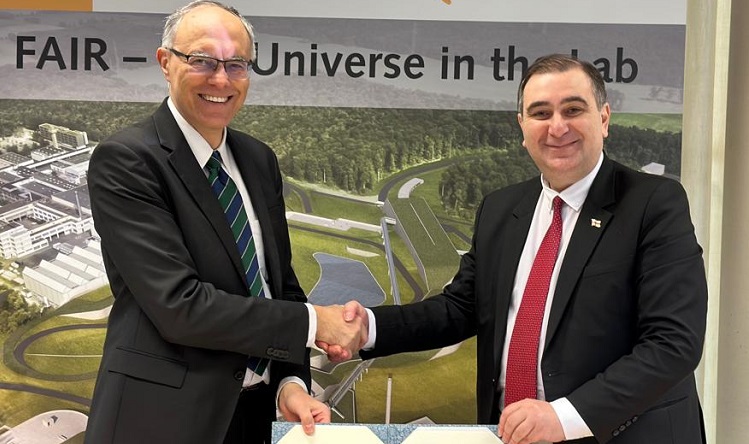Georgian Education, Science Minister discusses collaborative projects with new French Ambassador
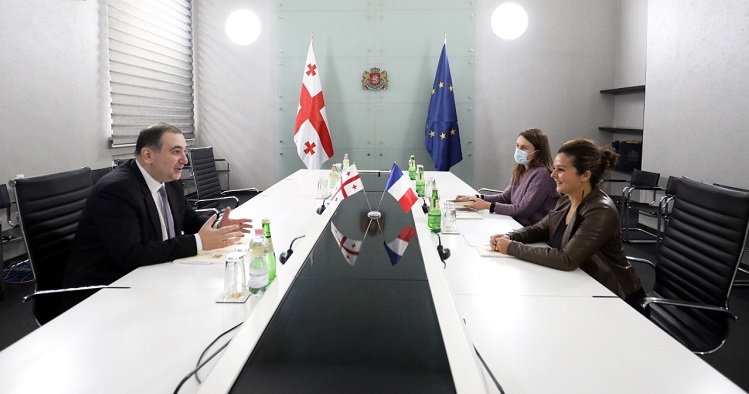
Mikheil Chkhenkeli, the Georgian Minister of Education and Science, on Tuesday met with Sheraz Gasri, the newly appointed French Ambassador to Georgia. Photo: Education Ministry press office
Mikheil Chkhenkeli, the Georgian Minister of Education and Science, on Tuesday discussed existing ties and prospects for future cooperation with French educational institutions, as well as major educational and scientific projects in the country, in a meeting with Sheraz Gasri, the newly appointed French Ambassador to Georgia.
Praising the project for a French-Georgian university as a “clear example of long-standing friendship and cooperation” between the two countries, the Georgian official proposed further expansion of the initiative by adding new academic programmes to the institution’s scope.
He also offered the French diplomat to consider implementation of joint vocational education programmes at the university, naming internationalisation of the direction among his Government's “top priorities”.
The Minister told the Ambassador an initiative by the country’s Prime Minister Irakli Gharibashvili had seen foreign teachers involved in vocational colleges across the country starting last year, in a bid to introduce international standards at the institutions.
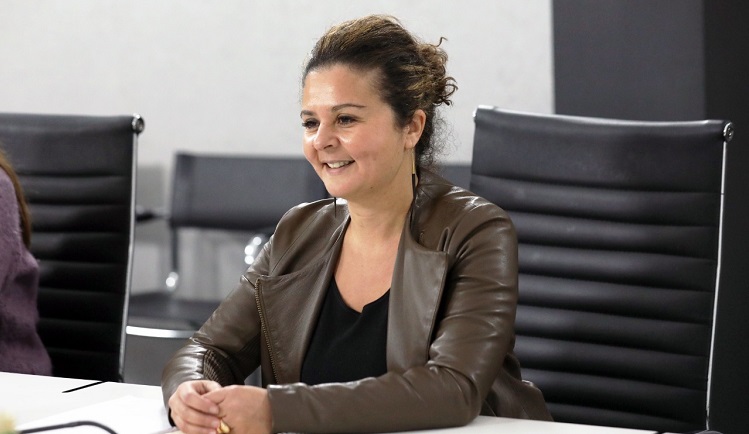 The new French Ambassador has expressed her readiness to further strengthen bilateral relations. Photo: Education Ministry press office.
The new French Ambassador has expressed her readiness to further strengthen bilateral relations. Photo: Education Ministry press office.
He added foreign language centres and exchange programmes would be offered to both students and teachers of vocational education in the near future, and urged a “close cooperation” with the French side to facilitate the intention.
In comments on the “mega project” of the Kutaisi International University, launched in the country’s west in 2020, the Minister praised the role of Bidzina Ivanishvili, the country’s former Prime Minister and the founder of the ruling Georgian Dream party, as the initiator of the project, adding the “top-level academic and scientific-research centre” had been set up in the country thanks to his “extremely important philanthropy”.
Noting KIU programmes were similar to those offered at the Munich University, Chkhenkeli said the Georgian institution was ready to “actively cooperate” with leading French universities to implement joint academic programmes.
 The sides have praised existing cooperation and pledged to take actions for closer partnership. Photo: Education Ministry press office.
The sides have praised existing cooperation and pledged to take actions for closer partnership. Photo: Education Ministry press office.
The official also highlighted the ongoing construction of a hadronic therapy centre on the base of KIU through the funding of Ivanishvili’s Cartu Foundation, with the facility expected to enable scientific work in the fields of oncology and proton therapy.
He said the “ultra-modern” cyclotrons of the centre had already been installed by Ion Beam Applications, a leading international manufacturer of proton therapy equipment for scientific research on cancer diseases. He added one of the cyclotrons would be intended for scientific research in medical and nuclear physics, while the other would be used for cancer treatment.
The sides also discussed Georgia’s membership in the Horizon Europe research and innovation programme, with Chkhenkeli noting the country’s joining of the platform had enabled Georgian scientists to participate in competitions announced within the programme with a budget of €95.5 billion under the same conditions as their counterparts from European Union member states.
 Tweet
Tweet  Share
Share

